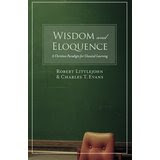Book Review of David Wells’ God in the Wasteland
Grand Rapids: William B. Eeardmans Publishing 1994
The primary concern of God in the Wasteland is the influence modernism and modernity has had on the Christian Church as a whole. Wells, a theology professor, offers a look at the trend of mega-church building, its emphasis on marketing, and its effects on theology. He discusses how the philosophies of Christianity, postmodernism, and New Age spiritualism have reacted to modernism and its perhaps prematurely called death – the end of the “Enlightenment project.” In the wake of the centuries old endeavor, a progression towards the ideal of man, the effects are still felt in the church. Christians are faced with re-establishing their relationship with God after distancing themselves for those centuries.
There are two methods of modernism that the Church has incorporated: marketing and giving the people what they want. This results from an attitude shared with capitalism: the people are consumers. This, consequently, makes God the product and the Church the salesman. The terms are irreligious, but as Wells point out, they are used by those practicing a church growth doctrine. The exemplar of this doctrine is George Barna, who applies business models to churches to make them grow. He states that pastors would do better to have a Master of Business Administration degree, rather than a Master of Divinity. Modern pastors need “gifts” of delegation, confidence, interaction, decision-making, visibility, practicality, accountability, and discernment. Barna suggests the power of visual realization, envisioning the large church and making it happen. The greatest controversy is over his idea of adapting the product to the customer’s needs. Another advocate of a more ‘pragmatic’ approach to church building is David Macavran, who published Understanding Church Growth and established the American Institute for Church Growth in the 1970’s. Macavran used psychology, marketing, and behavio9ral health research for his theories. Theology was conspicuously missing.
Giving the people what they want prompts the question what should the Church compromise? As modernism dominates in society at large, or the reactionary postmodernism or New Age spiritualism among segments of society, the Church may embrace the influence in order to attract members of society. Teachings on God’s transcendence, holiness, providence are taught much less than it once was. Condemnation of sin, emphasizing God’s judgment, and the reality of Hell are minimized as these do not appeal to the consumer as sovereign, another philosophy some modern churches share with capitalism, along with ideas finding legitimacy and value in the marketplace. Instead a multi-media presentation is made to self-interest. Wells writes of this environment, “It is here that entertainment and worship are not merely interspersed but often indistinguishable. And it is here, where life should be receiving its most serious and sustained analysis, that tons of literature and countless hours of television and radio programming are being produced that contain nothing more than the sorts of empty clichés and hollow comforts that are available everywhere else in the modernized world ... at this very moment, evangelicalism has bought cultural acceptability by emptying itself of serious thought, serious theology, serious worship, and serious practice in the larger culture” (27).
Modernization within the church has fostered two approaches: the therapeutic and the managerial. The therapeutic approach sees sin as a sickness, and the right technique is available in the marketplace to heal people. The manifestation of this is the support group. The managerial approach looks for efficient techniques for happiness.
Another way modernism may affect the Church, though not by purposeful program, but by a pervasive philosophy in society, is the elevation of the individual, beyond the appeal to consumer or patient. Modernism replaced God with self. Philosophers such as Kant, Nietzsche, Rority, and Fish not only put self on the throne as legislator and arbiter of truth and justice, but elevate the self to become creator of reality. They bring into question whether there is an external reality, which brings into doubt any external God to whose image the self should conform. “Thus thwarted in their effort to find meaning outside themselves, moderns have sought to relocate all reality internally, detached from any fixed moral norms” (94).
Wells recognizes effects of modernism in general, but we can spot them within the Church too. One effect is the attitude and language of victimhood. “This spiral into pervasive victimhood... marks a corresponding erosion of personal responsibility, and suggests that genuine moral discourse about what is right and wrong, irrespective of private interests, is increasingly less possible. Contemporary culture has so diminished our moral capacity, so robbed us of a concern to act responsibly, that we tend to resent moral demands from without or simply to dismiss them out of hand” (135).
The appeal to self-interest, the adaptation of the Church, the emphasis of certain socially accepted traits of God and a suppression or denial of the unpopular traits, all elevate the value of self while diminishing the values of God. God becomes weightless. “...what was once objective in God’s being, what once stood over against the sinner, is either being lost or transformed into something we discover first and foremost in ourselves in such a way that God’s immanence is typically psychologized. ...A God with whom we are on such easy terms and whose reality is little different from our own – a God who is merely there to satisfy our needs – has no real authority to compel and will soon bore us” (92-93).
This passage, the last line especially, is a bleak prophecy that appears to be taking place now.
ZEDS Blog
I enjoy the essays of Dafoe, Addison, and Samuel
Johnson, all of which were published in pamphlets. Pamphlets were in vogue from 1650-1800, providing writers a forum to express views on politics, society, religion, and art. This has been revived in modern times in the form of blogs.
This is now a slight revamp of my blog that started in 2008.
My reading has become a little more specialized, although previous books commented on show I was heading this direction. At this point I will review mainly Christian texts or other texts from a Christian perspective. I intend to post more regularly with book reviews.
I consider reading and writing as part of the spiritual
journey toward maturity and, I hope, wisdom. These are postings of what I’m learning along the way.
Rod Zinkel, August 19, 2015
Thursday, July 29, 2010
Subscribe to:
Posts (Atom)
Calendar
Chapbook: Two Natures
The Neville Museum series has published a chapbook of 15 of my poems. They are of human and spiritual natures. Here are two poems from the book:
Two Natures
On still water of the pond
two natures you may notice--
where scum has been gathering,
there also grows the lotus.
One Way
There's a boy
who stands knee-high
to a July cornstalk.
He stares one way
down the dirt road
his mother has gone.
He find Fortune
has desrted him,
like the poverty-stricken,
society-forbidden parent.
"I can't take care of you," she said.
I am the child who mirrors
his mother's tears without knowing why?
Two Natures
On still water of the pond
two natures you may notice--
where scum has been gathering,
there also grows the lotus.
One Way
There's a boy
who stands knee-high
to a July cornstalk.
He stares one way
down the dirt road
his mother has gone.
He find Fortune
has desrted him,
like the poverty-stricken,
society-forbidden parent.
"I can't take care of you," she said.
I am the child who mirrors
his mother's tears without knowing why?






